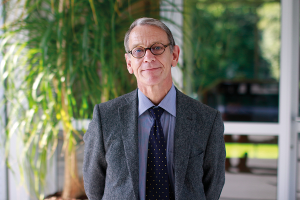Selenium is an essential trace element for anti-aging. We do not need much of it. However, our bodies cannot synthesize it for us. We need to get an adequate intake from our food. If necessary, we need to get a little extra from supplements. Selenium plays a role in promoting longevity and in slowing the aging process [Bjorklund 2022].

In many regions of the world, among them much of Europe and the Middle East, the soil and the crops are selenium-poor. For people in these regions, supplementation may be the only way to achieve and maintain a sufficient serum selenium concentration. Current estimates are that the optimal serum selenium status is approximately 125 mcg/L [Rayman 2020].
Selenium and Anti-Aging
Adequate selenium intake is especially important for anti-aging. The selenium element is needed for the synthesis of some 25 known selenoproteins. These selenoproteins have antioxidant, anti-inflammatory, and immune modulating effects. These positive effects link adequate selenium to staying healthier longer in life [Bjorklund 2022].
- Selenium reduces the extent of oxidative damage and the extent of chronic systemic inflammation.
- Selenium supports and modulates immune system responses.
- Selenium is associated with a slowing of the process of cognitive decline.
Selenoprotein P Important For Anti-Aging
Selenoprotein P, also known as SELENOP, is the primary transporter of selenium in the plasma. As such, it is a valuable biomarker for selenium status. SELENOP has powerful antioxidant and anti-inflammatory properties [Schomburg 2022].
SELENOP mediates selenium transport to vital tissues such as the brain and the endocrine glands. Even in times of inadequate selenium intake, these tissues have a privileged selenium status. They are protected against the loss of selenium in a way that, for example, the immune system is not [Schomburg 2022].
The KiSel-10 Study in Sweden

In the KiSel-10 Study in Sweden, Prof Urban Alehagen and a team of researchers investigated serum SELENOP status in 403 elderly community-living study participants. They took measurements at baseline and after four years of supplementation. At the start of the study, the study participants were quite Tlow in selenium (mean: 67.1 mcg/L). They received selenium yeast (200 mcg/day) and coenzyme Q10 (200 mg/day) or matching placebos. The four-year daily selenium supplementation raised the mean serum selenium level to 210.3 mcg/L [Alehagen 2024; Alehagen 2020] .
Analysis of the study data showed the following associations [Alehagen 2024]:
- The level of serum SELENOP at inclusion was inversely associated with biomarkers for inflammation. Low SELENOP meant high inflammation.
- Low levels of serum SELENOP at inclusion were associated with shorter leukocyte telomere lengths.
- High levels of serum SELENOP after four years of supplementation were associated with better quality of life and decreased mortality.
- Saturation of SELENOP was achieved at a serum selenium level of 146 mcg/L after four years of supplementation.
Prof. Alehagen and the KiSel-10 researchers concluded that significant associations exist between serum SELENOP concentration levels and inflammation, telomere length, quality of life, and mortality. Selenium supplementation improved SELENOP expression and facilitated systemic selenium bioavailability. The end result was positive health outcomes [Alehagen 2024].
The Berlin Aging Study
The 1,568 older participants in the Berlin Aging Study II had a mean age of 68.8 years. Just over half (51%) of the study participants were women. In a cross-sectional analysis of the study data, researchers made the following observations [Vetter 2025]:
- Participants with deficient serum selenium levels (below 90 mcg/L) had significantly higher rates of biological aging.
- The association between selenium status and biological aging was also statistically significant following adjustments for age, sex, BMI, smoking, and genetic principal components.
- Participants in the lowest quartile of serum SELENOP concentration, compared to participants in the highest quartile, showed accelerated biological aging.
Conclusion: Selenium Status and Biological Aging
The Berlin Aging Study shows that low levels of serum selenium biomarkers are associated with accelerated biological aging.
In the KiSel-10 Study, supplementation induced higher levels of SELENOP. The elevated levels of SELENOP were associated with significantly improved health outcomes.
Sources
Alehagen U, Aaseth J, Schomburg L, Larsson A, Opstad T, Alexander J. Selenoprotein P increases upon selenium and coenzyme Q10 supplementation and is associated with telomere length, quality of life and reduced inflammation and mortality. Free Radic Biol Med. 2024 Sep;222:403-413.
Alehagen U, Aaseth J, Alexander J, Johansson P, Larsson A. Supplemental selenium and coenzyme Q10 reduce glycation along with cardiovascular mortality in an elderly population with low selenium status – A four-year, prospective, randomised, double-blind placebo-controlled trial. J Trace Elem Med Biol. 2020 Sep;61:126541.
Bjørklund G, Shanaida M, Lysiuk R, Antonyak H, Klishch I, Shanaida V, Peana M. Selenium: An antioxidant with a critical role in anti-aging. Molecules. 2022 Oct 5;27(19):6613.
Rayman MP. Selenium intake, status, and health: a complex relationship. Hormones (Athens). 2020 Mar;19(1):9-14.
Schomburg L. Selenoprotein P – Selenium transport protein, enzyme and biomarker of selenium status. Free Radical Biology and Medicine. 2022;191:150-163.
Vetter VM, Demircan K, Homann J, Chillon TS, Mülleder M, Shomroni O, Steinhagen-Thiessen E, Ralser M, Lill CM, Bertram L, Schomburg L, Demuth I. Low blood levels of selenium, selenoprotein P and GPx3 are associated with accelerated biological aging: results from the Berlin Aging Study II (BASE-II). Clin Epigenetics. 2025 Apr 25;17(1):62.
The information presented in this review article is not intended as medical advice. It should not be used as such.
